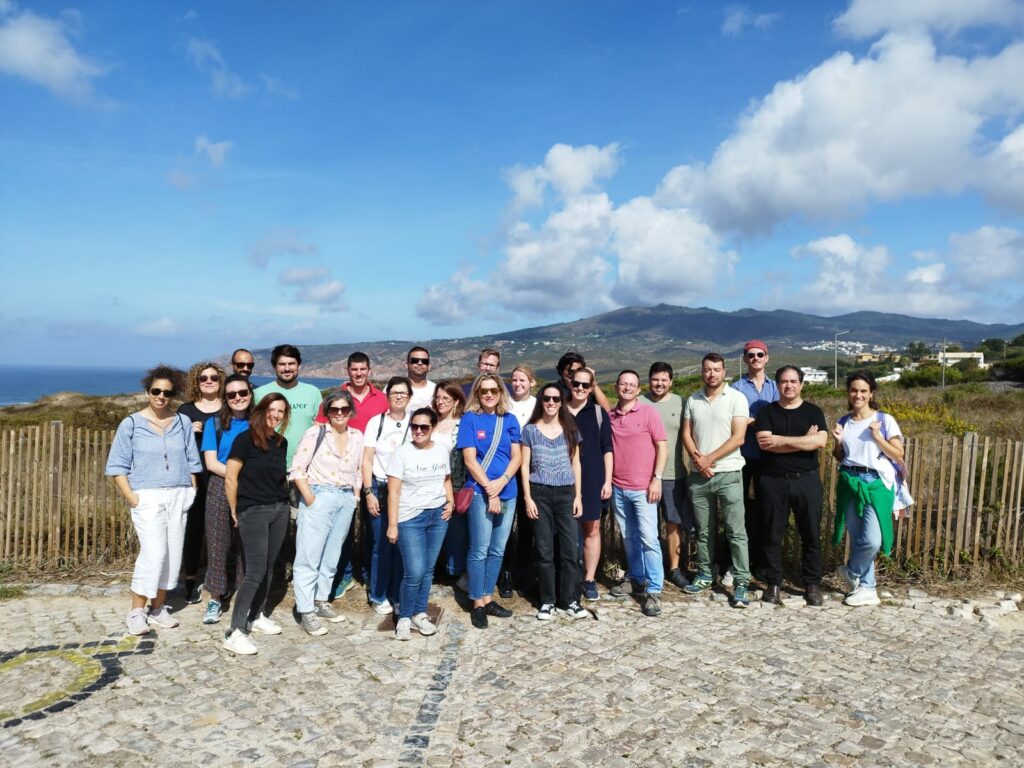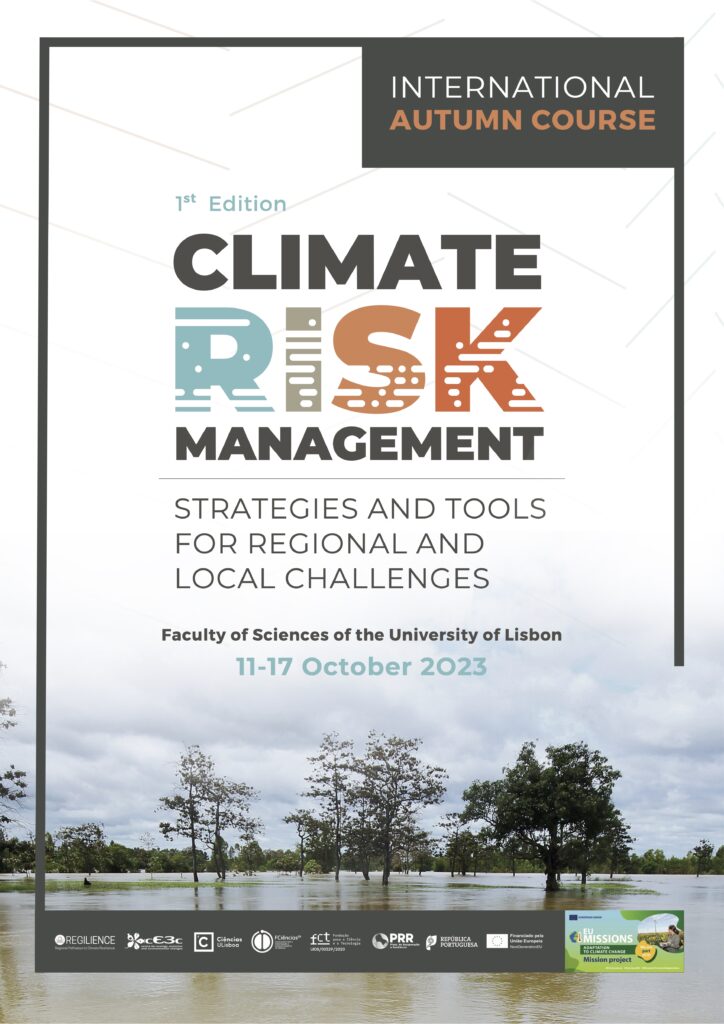Practitioners learned how to step up in their Climate Risk Management actions during the 6-day Autumn Training Course in Lisbon organised by the University of Lisbon and REGILIENCE.

A group of international experts provided insights into the most recent developments and tools available to address regional challenges. The participants benefited from keynote lectures and hands-on experiences with multiple tools that can be deployed at the regional and local levels, raising awareness of some of the key challenges and benefits of their practical application. The course was designed to follow the specific aspects of the Climate Risk Management policy cycle illustrated in the Adaptation Support tool of Climate-ADAPT. The course content supported the early stages of (1) preparing the ground for action and (2) identifying climate risks and response options, as well as the further advanced steps like (3) evaluating, implementing, and monitoring options, and (4) communicating, engaging, and reporting to different audiences. The international team of lecturers presented the key policy and science contexts, such as the EU Mission Adaptation to Climate Change, as well as their experiences with some of the most relevant tools and frameworks in this field. The different days focused on:
- online platforms for climate action;
- TCFD and ISO 14091;
- assessing maladaptation;
- impact chain analysis and the IPCC risk framework;
- assessing funding needs;
- monitoring, evaluating, and reporting climate risk management activities.
Additionally, participants had the opportunity to participate in a field trip to Cascais to experience and discuss real-life practical examples of climate risk management and adaptation actions. Cascais Municipality and Cascais Ambiente showcased and explained some of the green/nature-based solutions they recently implemented. During the discussion around the major benefits, challenges, and limits of these types of solutions, the course participants gained valuable insights and exchanged different local approaches within European regions. Presentations of case studies and their discussions provided the participants with an applied perspective on Climate Risk Management activities across Europe.

The course also provided room for creating a truly interactive community of practice in this area, with participants presenting their own work to other colleagues in an extremely good-humored and friendly atmosphere. The first edition of the Autumn Training Course: Climate Risk Management – Strategies and Tools for Regional and Local Challenges took place in Lisbon, Portugal, between the 11th and 17th of October 2023. More information on the course is available in the online booklet and on the REGILIENCE website. This edition was jointly organized by the Faculty of Science of the University of Lisbon and the REGILIENCE project.
If you are interested in the full programme click here.
The course received funding from the NextGenerationEU Recovery and Resilience Facility and support from the EU Mission on Adaptation to Climate Change.


Wrap-up video
Gallery
Poster
